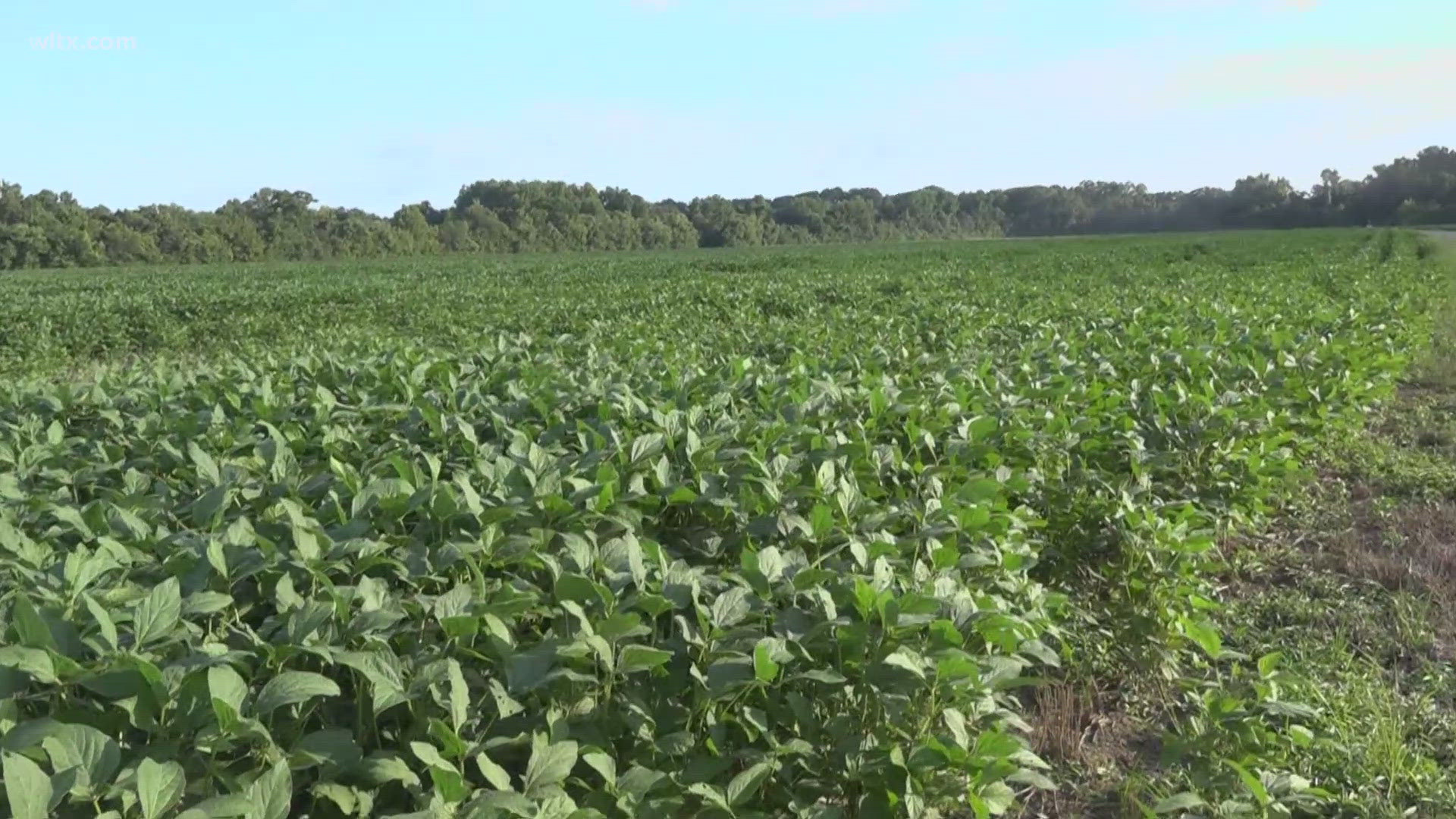A new Clemson University research project is starting next week with hopes of helping South Carolina farmers.
The research will be that of one of the state's most important crops: Soybeans.
This crop, vital to the U.S. economy, is particularly important in the Southeast.
It's something Kirkman Finlay III, a soybean farmer here in the Midlands knows all too well.
"From baby food to tortillas, there is no food product you buy in America that doesn't have soybeans in it," Finlay said.
The problem is, he has to rotate his soybean crop every third year because when there are periods of drought, like we just had from late June to early August, they can kill the crop.
"Especially on drier ground, more sandy ground, I've seen 'em completely die," Finlay said.
Researcher Dr. Shahid Mukhtar, a professor of genetics and biochemistry at Clemson is hoping to fix this.
"The South, we have so much weather instability, like (Hurricane) Debby will blow through Florida and Georgia and bring fungus and infection with it on the wind. So anything that they can do that helps with drought and helps with developing the ability to be more immune to fungal and viral infections would be awesome," Finlay said.
Dr. Mukhtar said more crops are going to be impacted by drought in the next 25 years, so something needs to be done to make them more resistant.
"Every cell in the plant has its own molecular signatures and we are going to understand those signatures. And more importantly we need to understand how these signatures interact across different cells in the whole plant and, then basically understanding those molecular signatures, we would be able to understand those molecular events that are happening in response to drought and heat," Mukhtar said.
He adds that his team of 14 researchers in the Southeast, spanning four states, will recruit about 30-50 additional researchers to take on this $6 million project starting September 1, collecting field data next April through September.
"We are hoping to provide some solutions to this very important global challenge, so we hope that we'll have some solutions in the next four to five years," Mukhtar said.

